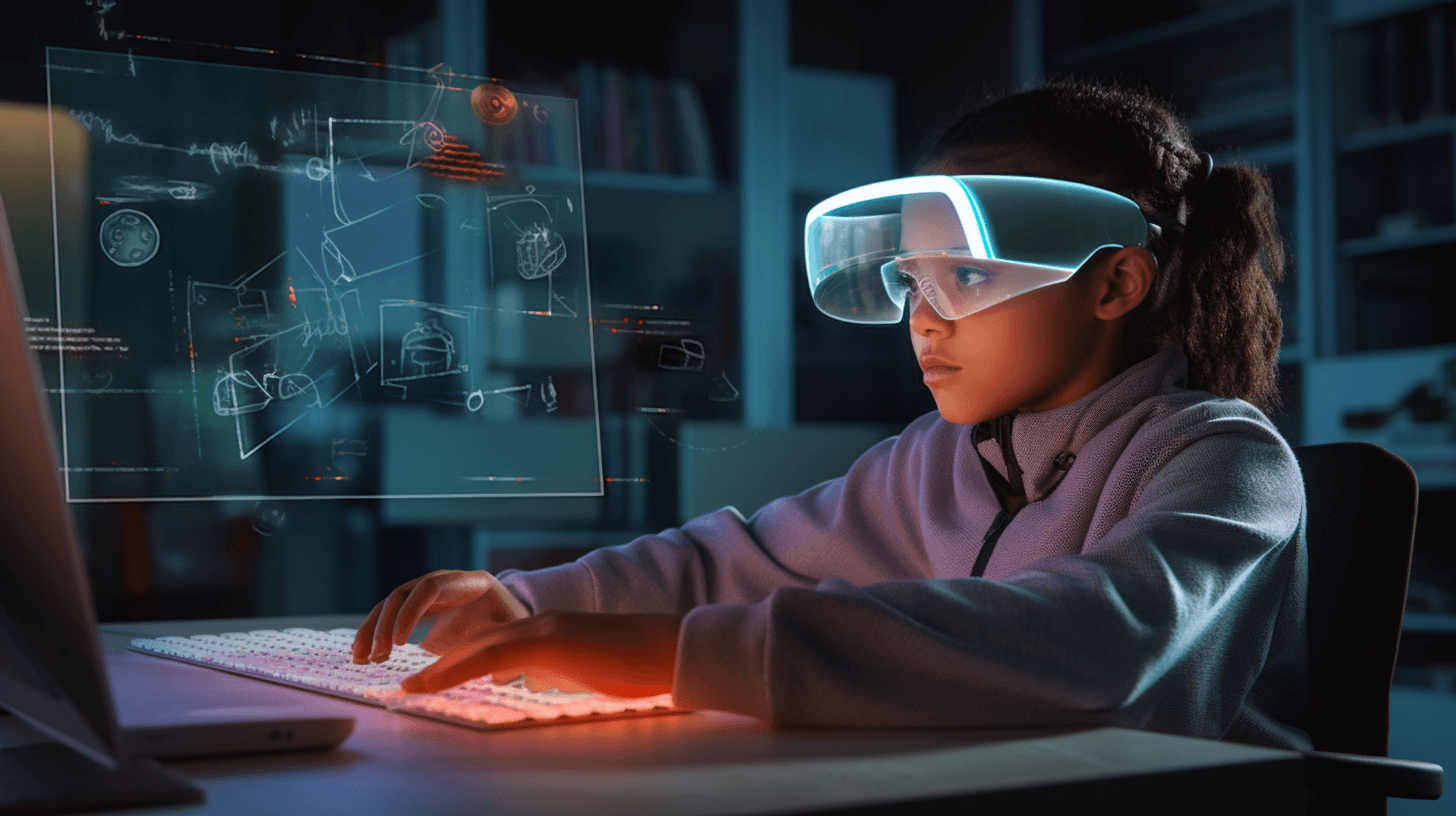
Revolutionizing Education: The Transformative Power of Technology
In a world propelled by rapid technological advancements, it comes as no surprise that education is also undergoing a profound transformation. The fusion of technology with traditional educational approaches is reshaping how students learn, educators teach, and knowledge is disseminated. This article delves into the awe-inspiring potential of technology to revolutionize education and create a learning landscape that is more engaging, adaptable, and effective than ever before.
1. The Changing Landscape of Education:
In the not-so-distant past, education primarily relied on one-size-fits-all approaches, limited resources, and geographical constraints. However, the integration of technology has opened up a world of possibilities. It’s breaking down barriers and enabling students to explore subjects at their own pace, regardless of their location. With technology, education can now be a dynamic, personalized, and accessible endeavor for all.
2. Advantages of Technology in Education:
The benefits of incorporating technology into education are manifold. Personalized learning experiences, once a distant dream, are now a reality. Adaptive learning platforms analyze student performance and tailor content to meet individual needs. Access to an unprecedented wealth of information and resources has become a cornerstone of modern education. Interactive simulations, virtual field trips, and online collaboration tools enhance the learning process and make education truly immersive.
3. Innovative Technological Tools in Education:
Today’s classrooms extend far beyond four walls. Online learning platforms and Massive Open Online Courses (MOOCs) enable anyone to access quality education, breaking down economic and geographical barriers. Virtual reality and augmented reality applications transport students to historical events, distant planets, and intricate molecular structures. Gamification engages learners by turning lessons into exciting challenges. AI-driven education tools provide real-time feedback and adapt to individual learning styles.
4. Overcoming Challenges and Concerns:
Despite the transformative power of technology, concerns persist. Screen time, data privacy, and the digital divide are among the top worries. However, these challenges are not insurmountable. Responsible implementation, digital literacy education, and equitable distribution of resources can alleviate these concerns and ensure technology’s positive impact on education.
5. The Role of Teachers in a Tech-Driven Classroom:
Technology may be a catalyst, but educators remain the heart of the learning process. Skilled teachers integrate technology seamlessly, using it as a tool to amplify their impact. They facilitate critical thinking, provide context to information, and foster meaningful connections that technology alone cannot replicate. The teacher’s role shifts from being the sole source of information to becoming a guide, mentor, and facilitator of knowledge.
6. Future Trends in EdTech:
The evolution of educational technology is far from over. Artificial intelligence and machine learning are set to reshape personalized learning further. Blockchain technology holds promise for secure and verifiable credentials. The growth of online and hybrid learning models indicates a shift towards flexible and lifelong learning opportunities. These trends will continue to redefine education as we know it.
7. Case Studies of Successful Implementation:
Examples abound of institutions harnessing technology for educational excellence. Online universities with global reach, K-12 schools embracing innovative learning platforms, and corporations leveraging technology for upskilling showcase the myriad ways technology enhances learning experiences. These case studies highlight the potential of technology to cater to diverse educational needs.
8. Ethical Considerations in EdTech:
While technology brings numerous benefits, ethical considerations are paramount. Data privacy breaches, algorithmic biases, and unequal access to technology raise questions that demand attention. Ensuring ethical implementation through transparent policies, continuous monitoring, and prioritizing inclusivity is essential for a sustainable and equitable tech-driven education ecosystem.
Takeaway
As we stand on the cusp of a new era in education, the transformation brought about by technology is undeniable. The journey from conventional classrooms to tech-enhanced learning environments is rife with opportunities, challenges, and paradigm shifts. By embracing technology responsibly, educators, students, and policymakers can collectively steer education toward a future that is more adaptable, engaging, and equitable for all.


